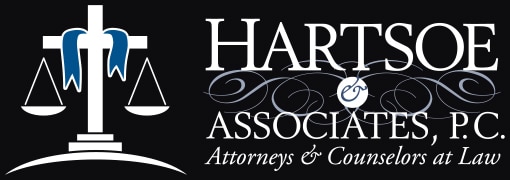
IRS Penalty Abatement Attorneys Serving Winston-Salem & Greensboro
Assistance with relief and reduction of tax penalties in the Piedmont Triad
Failing to file or pay your taxes on time can result in a slew of penalties from tax authorities, whether the Internal Revenue Service (IRS) or the North Carolina Department of Revenue (NCDOR). Both agencies will charge interest on unpaid taxes, from the date they were due until they are paid in full. Additionally, the IRS and NCDOR assess penalties on tax liability, typically five percent of the amount owed each month. As you can see, these charges quickly add up.
With the help of experienced tax attorneys, however, you may be able to find a resolution to your tax penalty concerns. At Hartsoe & Associates, P.C., we work with the IRS or NCDOR to negotiate an abatement program, which can reduce the amount of penalties for which you are responsible. A penalty abatement program can help relieve an enormous chunk of your or your business’ tax debt, leaving you free to pay off the remainder of your tax liability.
What is a penalty abatement request?
An eligible taxpayer may seek relief from tax penalties by filing a penalty abatement request. The most common method of abatement is called “reasonable cause.” When you file for abatement due to reasonable cause, the IRS will examine the circumstances or situation that led to the penalties. Then, they will grant relief (or abatement) if they determine you exercised extraordinary care in meeting your tax obligations, but were unable to do so due to extenuating circumstances.
Reasonable cause can include:
- Death, serious illness, unavoidable absence
- Fire, natural disaster, casualty, or other disturbance
- Inability to obtain financial records
- Incorrect advice from service or tax advisor
- Innocent spouse
- Location named official disaster area
- Service error
A few other reasons you might be granted penalty abatement include:
- Administrative waiver. If the IRS itself experienced delays in printing, publishing, or mailing of forms or guidance on a specific topic.
- Correction of error. If the IRS makes an error in any way, or fails to contact the taxpayer when necessary.
- Statutory or regulatory reasons. If the taxes owed are a very small amount, the taxpayer is newly retired or disabled, or the return had a timely postmark.
An experienced attorney may also be able to negotiate a “first-time penalty” abatement agreement with the IRS on your behalf. If you have a good tax compliance history with no previous penalties, you may be eligible for this abatement program.
Most of these rules apply to small business owners as well. Talk to our Winston-Salem tax attorneys today to find out more about penalty abatement.
What are the different types of tax penalties?
Although tax authorities may hand out any number of penalties to taxpayers, there are three common penalties with which you may be familiar, which are discussed in detail next.
Failure to file penalty
Taxpayers may face a “failure to file” penalty (FTF) if they do not file their tax returns by the official due date – or an extended due date after an approved filing extension. The standard IRS FTF penalty is a percentage of the taxes owed for each month or part of the month that the tax return is late. This penalty continues accruing until you file your return.
Failure to pay penalty
The failure to pay (FTP) penalty is assessed when you do not pay the taxes on your return in full by the date they are due, typically April 15. Often, taxpayers receive an FTP penalty because of a simple misunderstanding about the due date of their return, especially when extensions are involved. You may file a timely return and still receive an FTP penalty.
Failure to pay penalties can start small, but increase each month until it reaches a maximum penalty of 25 percent of the total unpaid taxes.
Failure to deposit penalty
A business will be charged a failure to deposit (FTD) penalty if it fails to deposit its taxes:
- By the due date
- In the proper amount
- In the required manner
The IRS provides businesses with a document outlining its tax deposit schedule and its requirements. If a business fails to follow these properly, the IRS will assess an FTD penalty. These penalties can start from a small percentage of the unpaid taxes up to a total of ten percent.
Could a Winston-Salem attorney help get my tax penalties waived?
The tax attorneys at Hartsoe & Associates have decades of experience helping clients work out their tax concerns with both the IRS and the NCDOR. Our goal is to not just reduce your tax penalties, but eliminate them altogether. When we take your case, we work with you to develop a financial strategy that allows you to settle your tax debt and save as much money as possible. In short, we are on your side.
Tax penalty abatement lawyers serving the Triad
If you have been assessed significant tax penalties, talk to Hartsoe & Associates, P.C. before you pay that bill. Our attorneys have years of experience working with the IRS and NCDOR in negotiating penalty abatement agreements and reducing tax debt for individuals and small businesses. Let us put together a custom solution for you. We serve clients in Winston-Salem and Greensboro, as well as the Piedmont Triad. To schedule a consultation with an experienced attorney, please call 336-725-1985 or fill out our contact form.
